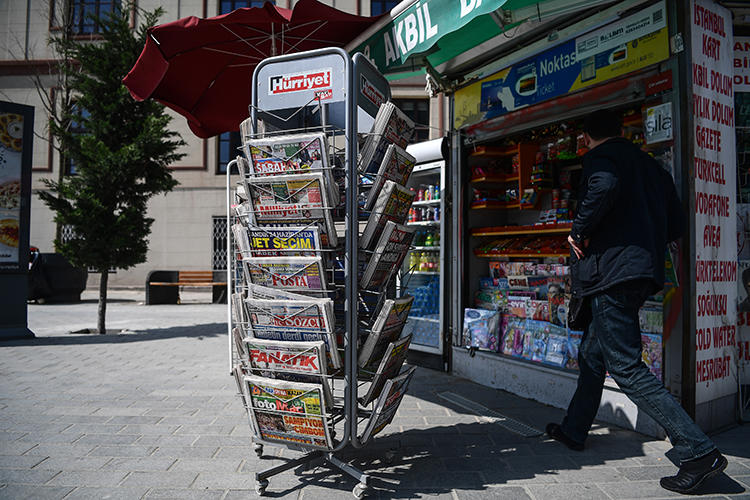On July 5, 2019, Turkey’s Foundation for Political, Economic, and Social Research, an Ankara-based think tank, released a report that described some foreign media outlets operating in Turkey and their correspondents as “anti-government” and “pro-terrorism.”
The think tank, founded in 2006 by İbrahim Kalın, now a chief adviser to the country’s prime minister and a spokesperson for President Recep Tayyip Erdoğan, is a pro-government organization that has close ties with the ruling Justice and Development Party, according to news reports and Kalın’s official pages on the website of the Turkish presidency and Georgetown University, where he is a senior fellow.
The report, titled “Turkey Extensions of Foreign Media Outlets,” analyses coverage by the Turkish-language services of British public broadcaster the BBC, German public broadcaster Deutsche Welle, the U.S.-Congress funded broadcaster Voice of America, Russian government-funded news agency Sputnik, Chinese government-funded broadcaster China Radio International, public-broadcaster sponsored network Euronews, and privately owned U.K. newspaper The Independent, according to CPJ’s review of the document.
CPJ noted many instances in which the report condemns coverage by those outlets that runs contrary to the political goals of Erdoğan and the Justice and Development Party. The BBC is criticized for reporting on criticisms of a new airport in Istanbul that is supported by Erdoğan; Deutsche Welle’s coverage of a 2016 attempted coup is found to be insufficiently critical of the coup; Voice of America is criticized for citing Fethullah Gülen, who the Turkish government alleges masterminded the coup attempt, in its coverage of the coup; Sputnik is accused of “terrorism propaganda” due to its coverage of the outlawed Kurdistan Workers’ Party; and Euronews is condemned for allegedly false reports about the nation’s poor economic performance.
The report also criticized specific journalists who work with those outlets, citing their reporting and their posts on Twitter, according to CPJ’s review. The report alleges that many of the journalists listed are biased against Turkey.
On July 8, the Journalists’ Union of Turkey, a private trade union, filed a legal complaint against the think tank, alleging that the report makes dozens of journalists working for foreign media organisations “public targets,” according to news reports.
Only China Radio International is praised in the report, which notes the broadcaster’s positive coverage on Turkey’s military actions and its economy.
Turkey is the world’s worst jailer of journalists, with 68 journalists behind bars for their work as of December 1, 2018, according to CPJ’s annual prison census.
